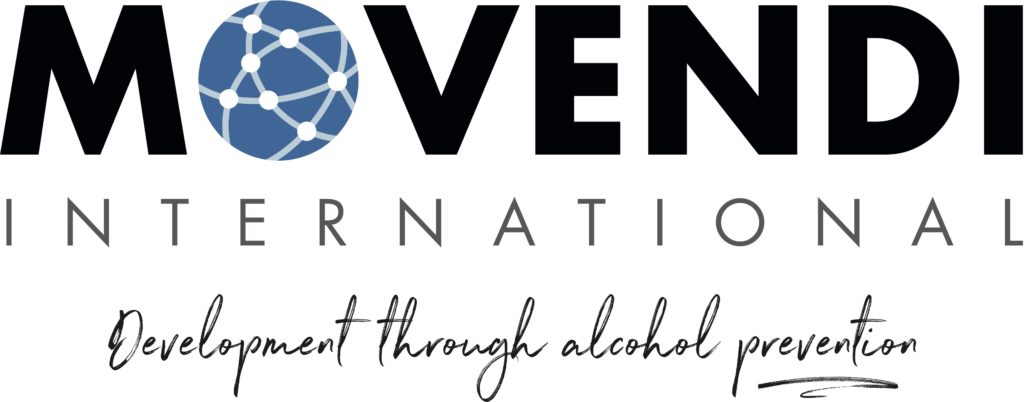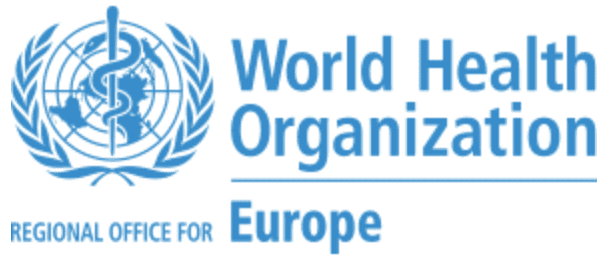WHO Europe has launched a groundbreaking initiative to support countries in the European region in the development of public health oriented alcohol taxation. The trailblazing signature initiative is underpinned by a new scientific study that illustrates the current failure in taxing alcohol properly and the potential of raising alcohol taxes to improve health, save lives, and strengthen government revenue.
In response, Movendi International welcomes and supports the new alcohol taxation signature initiative and proposes four actions to be developed urgently.
We welcome the new scientific analysis and congratulate the WHO European Region for launching the alcohol taxation signature initiative. It is a groundbreaking effort to advance the single most effective alcohol policy solution, in the region of the world with the highest alcohol burden,” says Kristina Sperkova, International President of Movendi International, the largest global social movement for alcohol prevention and control.
Our members who live in countries from all around Europe are really hopeful that the new initiative will strengthen countries’ capacity to develop public health oriented, evidence-based alcohol taxation policies – and in doing so save lives, improve health, and strengthen communities.
The products and practices of the alcohol industry cause some of the largest health and societal problems in the WHO European Region. They are the reason why Europeans, especially children and youth, cannot live in healthy communities and enjoy full well-being.
But a paradigm shift towards health taxes and sustained political commitment to implementing high-impact alcohol policy solutions has the potential to improve the lives of millions of people across Europe.”
Kristina Sperkova, International President, Movendi International
The coronavirus pandemic reminds us all just how important health and well-being really are. A healthy Europe where people and especially children and youth lead healthy and fulfilling lives is an important priority for people and communities across the region.
Persistence of alcohol harm and absence of public health action
But persistently high levels of alcohol harm create a heavy social, economic, and health burden. For example, one in every 10 deaths in the entire region is caused by alcohol every year. Especially young people in Europe are heavily affected by alcohol harm. Nearly one in every four deaths among young adults aged 20–24 years is due to alcohol products.
Alcohol remains very affordable and is become more affordable, not less, in the European Region. Alcohol taxes have been under-utilized as a public health measure, constituting on average only 5.7%, 14.0%, and 31.3% of the retail prices of wine, beer, and liquor, respectively.
Overall, the proportion of tax in the final consumer prices varied, with countries in the northern and eastern part of the Region having higher tax shares included in their final retail prices of alcoholic beverages. The median tax shares of alcohol prices for beer, wine, and spirits for the WHO European Region were 10.8%, 0.8%, and 30.6%, respectively.
These are very low, especially for wine, with 22 out of all the European countries having no alcohol excise taxes at all, and the majority of them located in the EU.
Learning the lessons from tobacco control and overcoming Big Alcohol interference
Despite the fact that alcohol is a psychoactive substance and a known carcinogen, which causes substantial harms to alcohol users, their families, communities, as well as societies and economies in general, it is far less regulated than tobacco, including the regulations of the level of taxation.
For instance, the WHO recommends that for tobacco the proportion of tax should represent at least 75% of the retail price of the most popular brand of cigarettes. In the WHO European Region, more than half of the Member States follow this recommendation. Compared to the tax share of tobacco, the average tax share of alcohol prices for the European Region is about four times lower.
However, no such WHO recommendation exists for alcohol and scientific modelling suggests that alcohol taxation should be considered a priority for public health given the substantial number of lives potentially saved, especially given that pricing policies remain the most under-utilized of all available policy options to reduce alcohol consumption and harms.
Europe is the region where the majority of Big Alcohol giants are located. Alcohol industry interference is a major reason why alcohol taxation shares are so low. This is even exacerbated by the EU’s longstanding financial support for the wine industry, where it is estimated that from 2007 to 2012 every litre of wine produced in the EU was supported by €0.15.
Alcohol taxation and prevention of death and disease
The five largest groups of causes of deaths due to alcohol made up more than 90% of all the causes averted through alcohol taxation in the region:
- cancers,
- cardiovascular deaths,
- gastrointestinal deaths (mainly liver cirrhosis),
- injuries, and
- alcohol use disorders.
Raising alcohol taxes is a powerful tool to counteract death and disease due to alcohol. And it is a tool which has clearly not been used to its full potential in the WHO European Region. For example, the absence of any tax rate for wine in almost half of the countries (most of them EU countries), and the median tax share of <1% for wine for the entire Region, is unacceptable from a public health standpoint.
A 15% tax share with the same tax per unit of ethanol in beer, wine, and liquor products would prevent 132,906 deaths. That amounts to 24.19% of the total number of deaths due to alcohol.
Four proposals to accelerate alcohol taxation development
Communities around the European region are requesting change. They demand the alcohol industry pays for the harm their products and practices cause, instead of paying for their marketing and Big Tobacco-style lobbying campaigns.
The best way to achieve this contains four elements:
- The World Health Organization should develop a recommendation for a minimum tax share of the alcohol price. This should be accompanied by technical guidance for Member States on how to develop such public health oriented alcohol taxation.
- The World Health Organization in Europe, together with the European Commission, the OECD, and others should develop investment cases for alcohol taxation to illustrate the return on investment from public health oriented alcohol taxation and facilitate support from ministries of finance.
- A paradigm shift in alcohol policy in general and alcohol taxation in particular is urgently needed: away from policy making in the interest of the alcohol industry; to a focus on public health and sustainable development in alcohol policy making.
- Institutions with health promotion taxation expertise should form an inter-agency joint initiative for alcohol taxation. The WHO, UNDP, World Bank, OECD, and others should come together to pool resources, unlock synergies and facilitate capacity building of countries in the European Region and around the world for public health orientend alcohol taxation.
The new study and signature initiative are important milestones for the advancement of high-impact alcohol policy solutions in our region,” says Ms Sperkova
We see that progress is urgently needed in advancing alcohol taxation and bringing the benefits to European societies. People want to live in healthy communities. They value health and well-being greatly.
So, we really need these four proposals to take center stage in the new alcohol taxation signature initiative.”
Kristina Sperkova, International President, Movendi International
People consistently value health as the most important condition for a happy and fulfilled life. And evidence-based alcohol taxation is a powerful, yet currently underused tool, to reduce harm, promote health and invest in communities long-term.
It’s time for a bold new initiative that puts people’s health before alcohol industry profits by establishing evidence-based alcohol taxation levels; and by re-investing into the health and well-being of people and communities across the region.
Notes to the editor
About Movendi International
With 130+ Member Organization from 50+ countries, Movendi International is the largest independent global movement for development through alcohol prevention. We unite, strengthen and empower civil society to tackle alcohol as serious obstacle to development on personal, community, societal and global level.
About WHO Regional Office for Europe
The World Health Organization (WHO) is a specialized agency of the United Nations created in 1948 with the primary responsibility for international health matters and public health. The WHO Regional Office for Europe is one of six regional offices throughout the world, each with its own programme geared to the particular health conditions of the countries it serves.
About the study
Suggested citation: Neufeld, M., Rovira, P., Ferreira-Borges, C., Kilian, C., Sassi, F., Veryga, A. and Rehm, J., 2022. Impact of introducing a minimum alcohol tax share in retail prices on alcohol-attributable mortality in the WHO European Region: A modelling study. The Lancet Regional Health – Europe, p.100325.
About the signature initiative
WHO Europe Launches Alcohol Taxation Signature Initiative. Read more here.
Key facts – report overview
A study conducted by the NCD Advisory Council’s signature initiative working group found that 132,906 lives can be saved if WHO European countries introduced a minimum level of 15% tax on the retail price per unit of alcohol, regardless of the type of alcoholic beverage.


